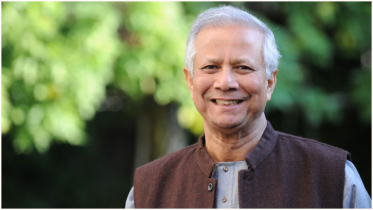Nike, Adidas to open showrooms in Dhaka

Exciting news awaits local sneaker lovers and sports enthusiasts in Dhaka as the world's two leading sportswear giants – Nike from the USA and Adidas from Germany – are set to open showrooms in the capital city of Bangladesh within the next two months.
This move is facilitated by the DBL Group, which previously introduced another famous sportswear brand Puma to the capital in 2019.
"We have already signed an agreement with Adidas, and their store will be ready to open in Gulshan by October. The number of stores will be increased based on the response received from consumers," said MA Rahim Feroz, vice chairman of DBL Group.
"The contract with Nike has also been finalised, and their store is scheduled to open by November," he added.
Stakeholders said the entry of these global brands into Bangladesh reflects their confidence in the country's promising growth prospects. Bangladesh has experienced rapid growth and currently boasts approximately 35 million affluent and middle-class consumers.
Although Adidas and Nike's products are available in Bangladesh to some extent, their prices have been considerably high.
For instance, Bata sells the Adidas Adizero Select sneaker for men at Tk18,999 even after a Tk1,000 discount. However, the same sneaker costs less than €88, which is around Tk9,150 or less than half the price in Bangladesh.
The primary products offered by Nike, Adidas, and Puma are shoes, particularly sports shoes. Additionally, they also provide sportswear, bags, caps, and other apparel products.
According to Nike's official website, they currently operate approximately 2,200 Nike stores across 80 countries and regions worldwide. Similarly, the Adidas website states that they have a presence in over 2,000 stores.
Nike, established in 1964 in Oregon, United States, has 125 outlets in neighbouring India, including various Nike Adidas stores located in Kolkata.
The opening of stores from two globally renowned companies in Dhaka has garnered positive reception among the upper middle class and upper-class buyers in the area.
Sheikh Mohammad Danial, director at an insurance company, expressed his views to TBS, stating, "When I travel abroad, I usually purchase Nike and Adidas shoes. Having the opportunity to buy them in Dhaka would be highly beneficial for us."
He further added, "Moreover, individuals involved in sports within the country, including players, currently have to travel overseas to acquire these products. Many people also resort to online purchases from abroad. If they can now purchase these products locally, it will not only be more convenient for them but also alleviate the pressure of foreign currency withdrawal."
Earlier, after launching its first store in Dhaka in 2019, Puma the number of stores of the global brand has now expanded to four, encompassing Dhaka and Chattogram. Stakeholders indicate that an additional store from the renowned brand is scheduled to open in Uttara in December of this year.
MA Rahim Feroz, vice chairman of DBL Group, said, "The country's economy is experiencing growth, and there is a rising number of individuals regularly using products from these companies."
He stated that the expansion of stores was driven by profitability, although they did not anticipate significant profits initially.
"The primary focus was on branding our group, the DBL Group, with connection with these global brands," he said.
Why price is high in Bangladesh
According to industry insiders, the main reason for the high prices of these products is the imposition of high import taxes, including customs duty, value-added tax, and other taxes.
MA Rahim Feroz highlighted that sneakers face a 100% import tax, while accessories and clothing are subject to a 125% import tax. Consequently, prices rise significantly, creating a significant gap compared to other markets.
"If the import taxes were reduced, it would enable us to offer products at a more competitive price," he said.
He also mentioned that if brands allowed franchisees to manufacture their products in Bangladesh, there would be a possibility of reducing prices. However, so far, such permissions have not been granted.
"Some products of these brands are manufactured in India. If our brand allows local manufacturing, particularly for clothing items, it would be feasible to offer those products at a lower price," he said.
.png)




